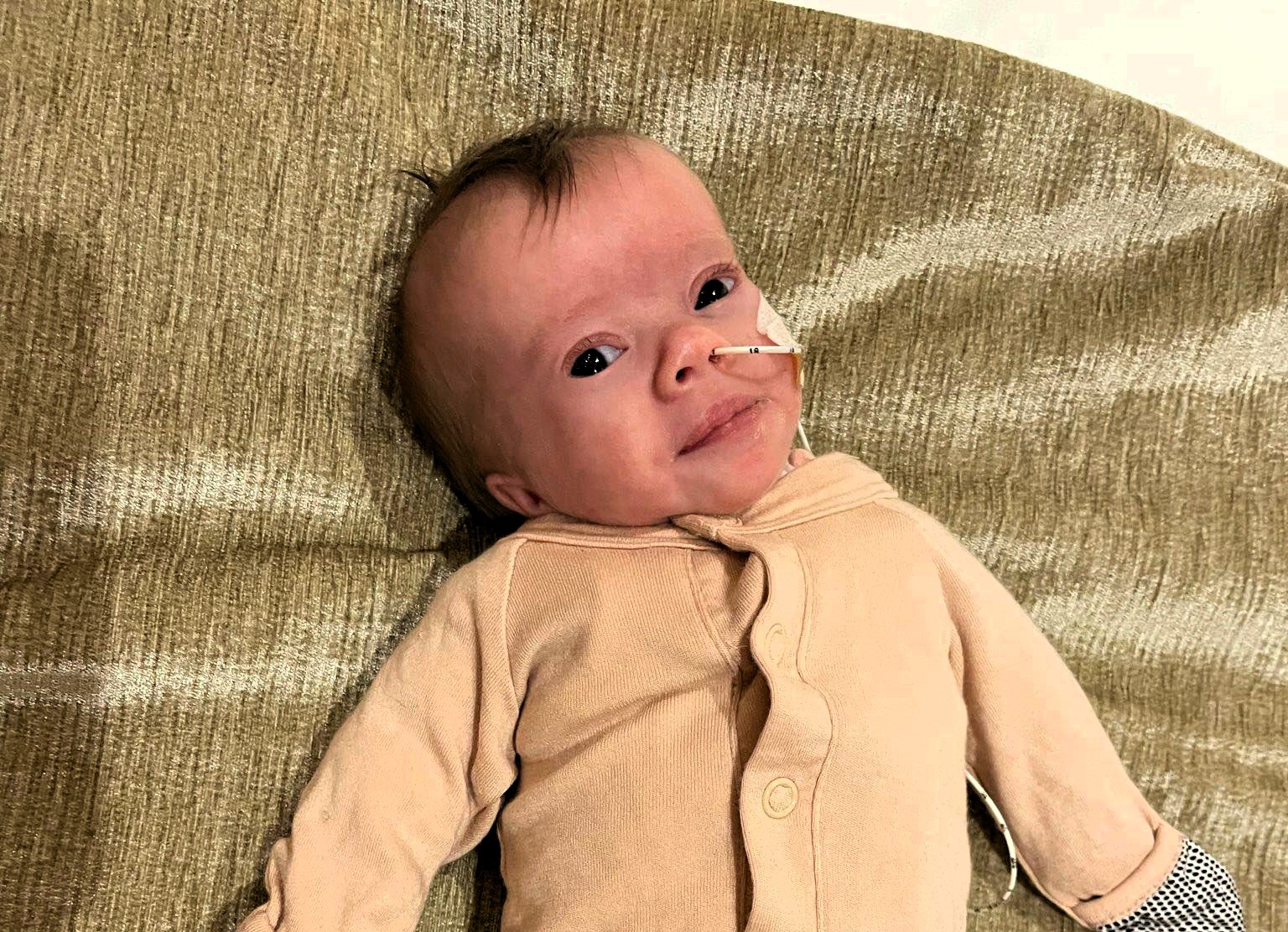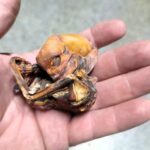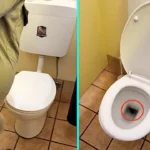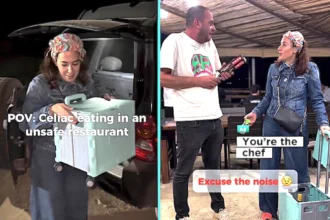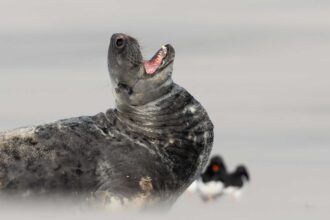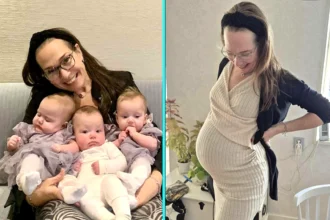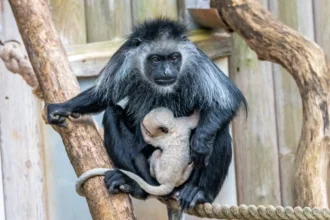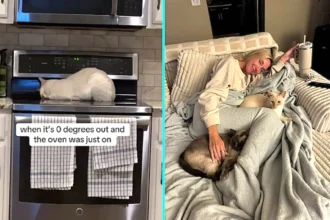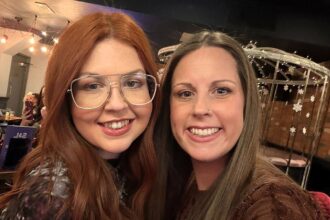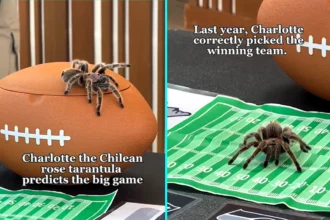An adorable baby born weighing just 1lb 2oz and with a rare condition “never stops smiling” amid her health battle.
Brave Nora, who is now 17-months-old, was born nine weeks early and spent 10 weeks in the NICU.
The Glasgow-based tot was diagnosed with Primordial Dwarfism – a rare condition that causes growth delays in a child’s early stages of development.
Now, her parents Amy Mcanish, 36, and Ruaraidh Mackay, 33, are sharing her story to help raise awareness for a major part of Nora’s life – her feeding tube journey.
- Advertisement -
READ MORE: I teach my kids to stand up to bullies: a controversial approach by a mum
And despite the challenges she faces from her condition, the sweet toddler always has a smile for her family and medical team.
“Nora came out with one eye open and the doctors commented on how feisty she is,” Amy told What’s The Jam.
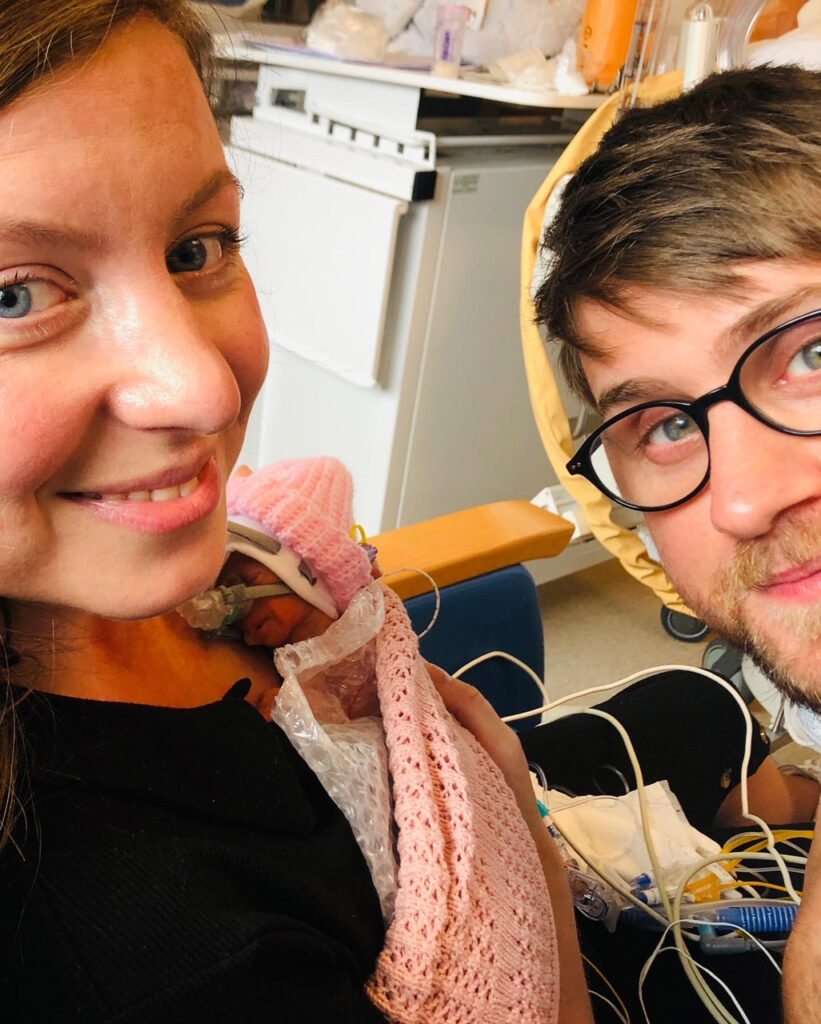
“I think this helped her – she was keen to fight and, being so small when she was born, she needed to.
“She is a very happy baby and has definitely got a mischievous side and a cheeky smile.
- Advertisement -
“Despite having lots of not very pleasant procedures done to her she doesn’t let it stop her from laughing and smiling.”
After she was born, due to her small size, Nora was fitted with a nasogastric (NG) feeding tube – through her mouth initially, then later through her nose.
Amy said: “We got to feed our daughter before we held her.
- Advertisement -
“Ruaraidh and I were trained on how to feed her from quite early on and she was initially fed via a syringe with my breast milk throughout our NICU and special care journey.
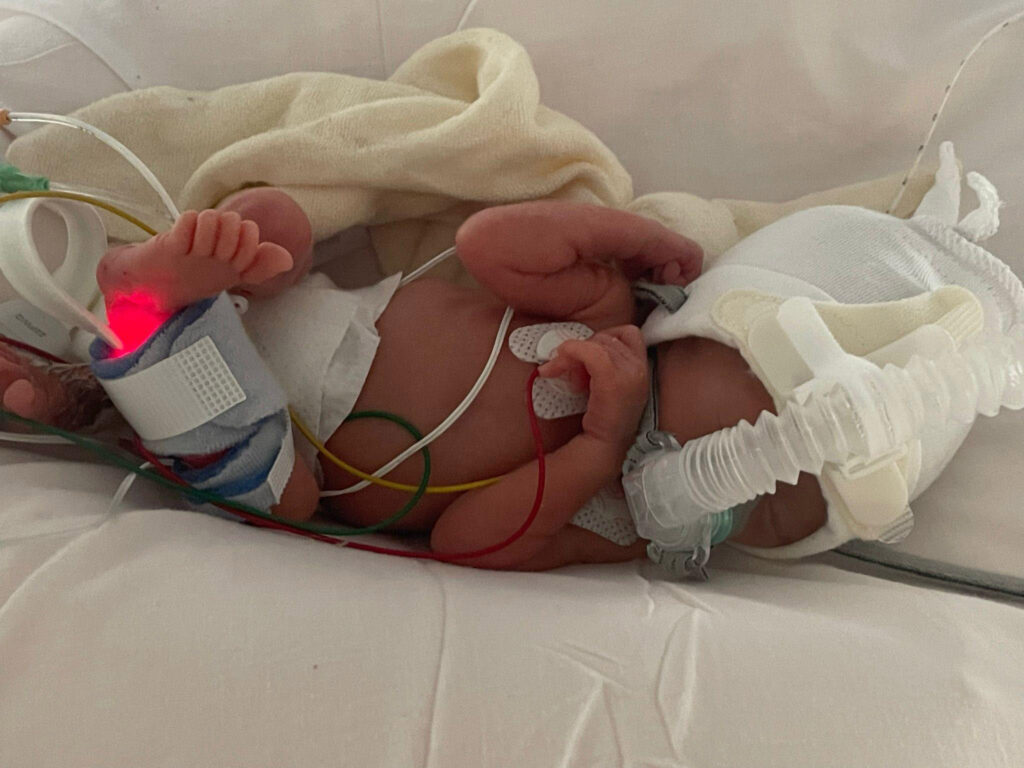
“Nora was fed every two hours for a long time, then moved onto three hourly feeds of bolus feeding, where milk is sent through a feeding tube using a catheter syringe.
“We had to get training to fit the NG tube, which was a bit stressful, but we got good at it quickly because Nora’s tube fell out often.
“We developed a good technique to make it stay put.
“We were allowed home from hospital once trained, so were keen to learn and develop our own routine.”
When the family got home, Nora was still being fed expressed milk every three hours.
The tot also suffers from bad reflux and needed be kept upright an hour after she was fed – so Amy and Ruaraidh would do shifts on who was feeding her and staying awake with her through the night.
Amy said: “I look back and wonder how we did it.
“Ruaraidh is very supportive, and the hospital was great.
“I had good support from the breastfeeding team in NICU to help me express, and they loaned me a hospital grade breast pump. They made it as easy as possible.
“I had an oversupply so donated some of the milk to Milk Bank Scotland.”
Nora is currently around seven pounds in weight and now has an NJ tube, but a recent development in how she is being fed is giving the family some relief.
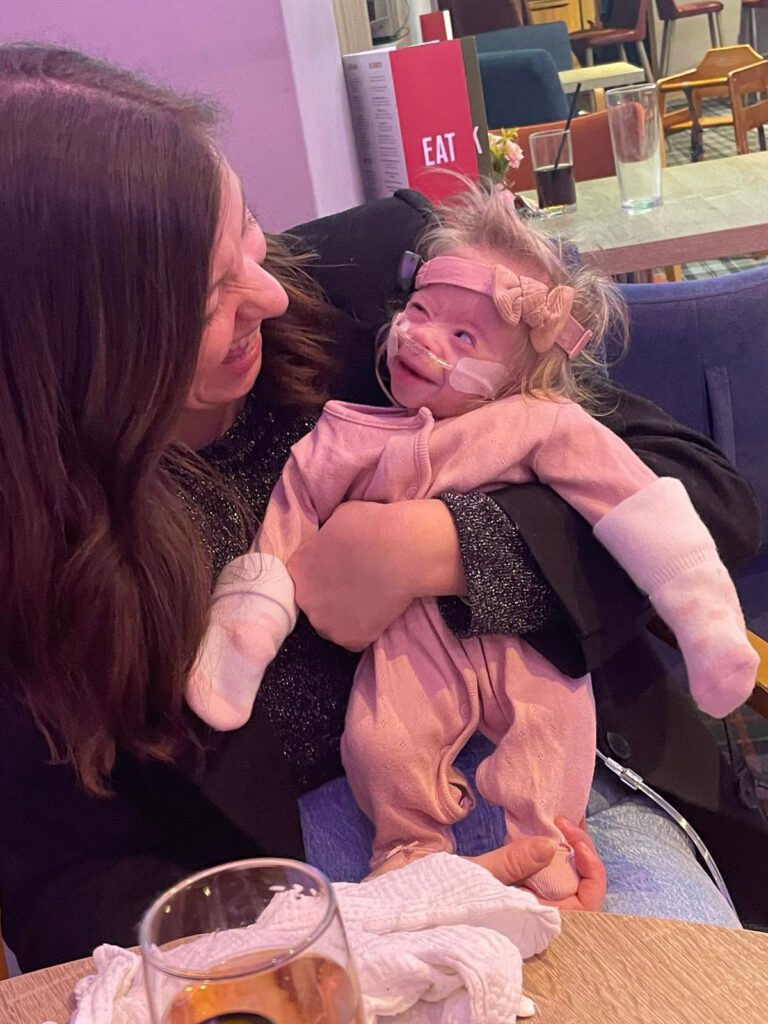
Her mum explained: “The milk from the tube goes directly into her small intestines, and we now have a pump which has changed our lives for the better.
“Having the pump means we don’t need to get up through the night as it feeds her automatically, so we have discovered she’s quite a good sleeper.
“The NG is great for Nora as it means she’s not losing milk and she’s much more comfortable.
“Since being on the pump she has developed greatly, and we are able to do more with her because we don’t need to keep her upright for an hour after she is fed.
“She has even started eating oral foods too and tries some porridge in the morning.
“That being said, as Nora has gotten a bit older, she has become very handsy, meaning she gives us plenty visits to the hospital to get her NGI tube re-fitted after pulling it out.”
Next steps for Nora involve looking at a PEG-J feeding tube, which bypasses the throat and stomach.
Amy anticipates this will involve some lengthy discussion with her medical team, who will help guide them through all options and scenarios because Nora is so petite.
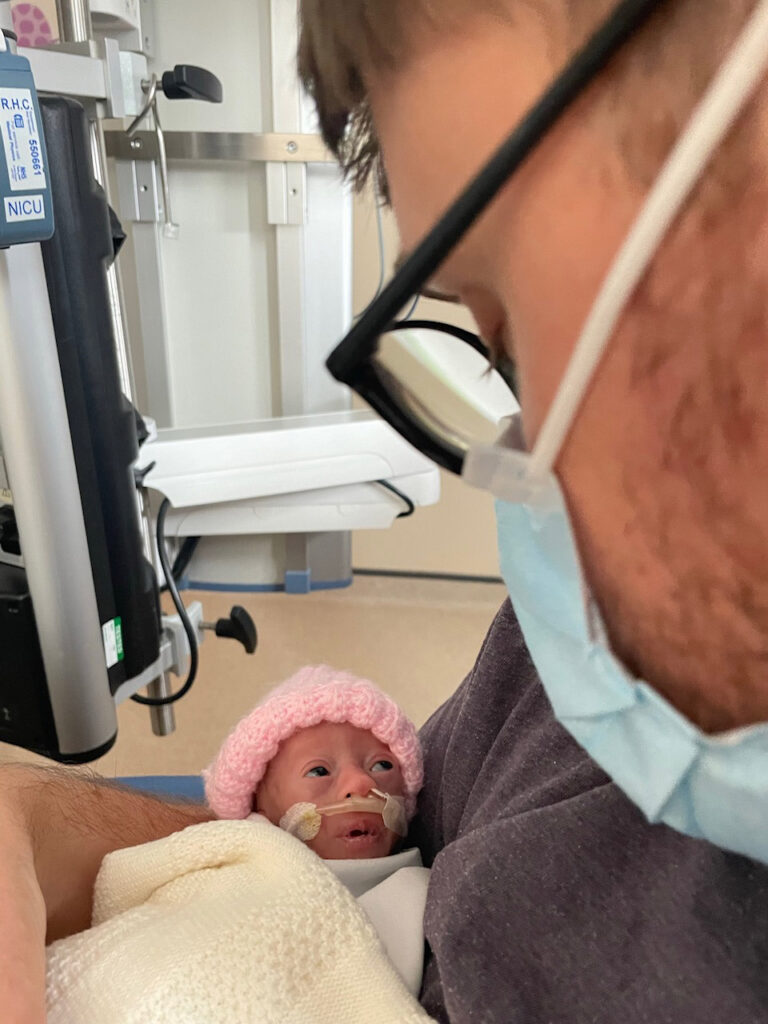
Despite all that the little girl has gone through, she continues to have a smile on her face.
Amy added: “Nora is a complex wee thing but is such a happy wee girl.
“We know the learning isn’t over yet and as Nora gets older, we know we will need to continue to learn how to care for her – but it isn’t as difficult as it seems.
“Most people think she is really unwell because of all her tubes but it doesn’t feel as complex as it looks.
“For any parents just starting their feeding tube journey, it’s not as bad as you think.
“At the time you think ‘this is just life now’ but you just need to find your routine and life gets easier.”
Nora is currently under eight different teams at the Royal Hospital for Children, Glasgow including dietitians, respiratory, gastrostomy, and ophthalmology.
She is also treated by the audiology team due to her currently having a bone conducting hearing aid, as well as orthopaedics due to her hip dysplasia, the renal team because she has high blood pressure, plus a GP, physiotherapists, and occupational therapists.
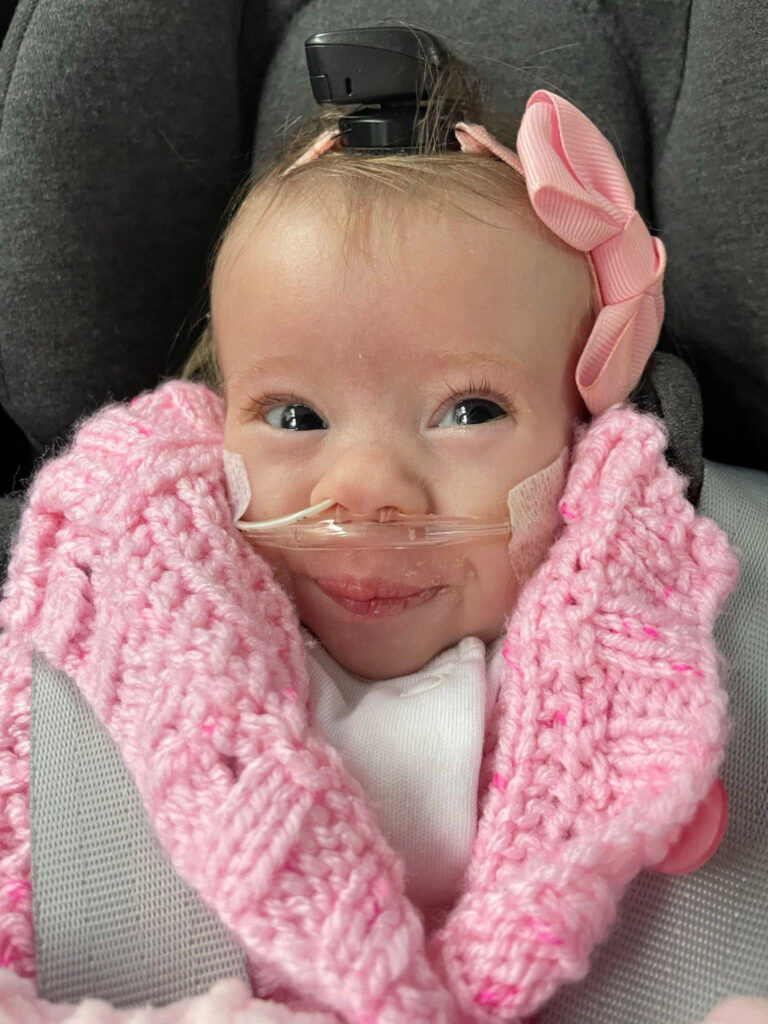
“We’re delighted to see that Nora and her family are doing well and have found their ground in managing Nora’s condition,” Mandy Meechan, chief nurse of Glasgow paediatric at the Royal Hospital for Children, said.
“While rare conditions are just that – rare – collectively there are many children out there who have them.
“In many cases, there won’t be a lot of information out there on a rare condition and parents need support from various experts to help guide them in each stage of their child’s medical progression.
“Generally, children with rare conditions, such as Nora, will require multiple forms of care and so we are glad that we’re able to offer a multidisciplinary approach here at the hospital – especially with her feeding.”


